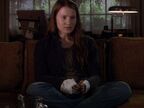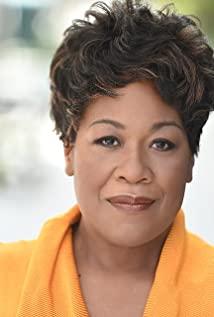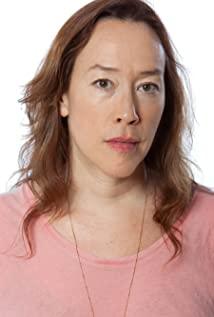This is His thoughts on relationships between men and women, "It's the most irrational, crazy, weird. But we go through it all the time because we mostly need eggs."
Isn't life like that? City life is stressful and lonely, and everyone is more or less mentally ill in order to accept the absurd premise of survival. The more sensitive the person, the more suffering. But it is still unimaginable for Chinese people to go to the point of seeing a psychiatrist. So, let's take a look at "Inquiry".
Some people liken "Inquiry" to the cauliflower in the TV series, which is nutritious but not delicious. In fact, with the right chefs and diners, cauliflower can also be delicious. This is an Israeli TV series. The cost of filming this drama is not enough for Israelis to buy a pair of shoes in "Sex and the City", but its popularity almost constitutes a cultural phenomenon. It was later introduced by HBO. The lines are translated almost word for word from Arabic to English. The director is Rodrigo Garcia, the son of the great writer García Márquez. Perhaps because of his father's reputation, he did not choose to write novels, but became a TV drama director. He has filmed the famous "Under Six Feet" and "The Sopranos", which are very marginal but extremely creative stories. The New York Times has a feature on him about his gifted talent for capturing the vulnerable psychology of women, which is evident in The Inquiry.
Compared with "Lost" and "Hero", the plot and characters of "Inquiry" are surprisingly simple. The protagonist in the play is the psychiatrist Paul and his four patients, who take turns to consult four times a week, 30 minutes each time, and on the last day he goes to see his own psychiatrist. Each episode is like a one-act play, with only two or three actors, and the camera almost never leaves the psychiatrist's office: the orange cloth sofa, the dim lamp, the books on the wall, it always seems to rain outside the window, the scenery is blurred, the room It was dark and quiet, with only the faint sound of clocks moving. The 30-minute plot is completely supported by dialogue, and it doesn't feel boring after watching it, it's all about the language and the skills of the actors. So Rodrigo said, "This show is just about acting and writing."
On Monday it was Laura, 30, sexy and beautiful woman with suicidal tendencies who fell in love with her psychiatrist, called Erotic Transference;
on Tuesday it was Alex, a bomber pilot , typical of narcissistic personality disorder, bombed a school by mistake in Baghdad, killed 16 children, but felt no guilt;
Wednesday was Sophie, a 16-year-old female gymnast, smart, acerbic, chaotic, There is no shortage of teenage innocence and suicidal tendencies, her life has been largely ruined by the adults around her;
Thursday was Amy and Jack, a troubled couple arguing over pregnancy or abortion, and their grievances against each other were surging The river water makes people breathless;
on Friday, overwhelmed, Paul went to see his psychiatrist Gina - his youth mentor, a warm, sensitive listener and protector, but due to old hatred and new wounds, The debate between them was the most heated, and at times exhausting.
In Woody Allen's films, psychiatrists are often portrayed as a group of ridiculous and useless people. The protagonist often pays to see psychiatrists for more than ten years without seeing improvement, even if the strong Doctor Melfi in "The Sopranos" , is somewhat funny. There are few TV dramas that describe a psychiatrist's story in a serious manner, especially the detailed consultation process. Because one can imagine the dullness: long silences, hesitant confessions, unable to find an accurate word to express oneself, facing embarrassment and secret joy when one's eyes are focused. Those who are in it may be like a great enemy, but from the outsider's point of view, this process is very dull.
However, in "The Consultation", Paul's process of observing words and deciphering cocoons in his dialogue with the patient is almost like Agatha's detective story. All four patients were intelligent, cautious, and wary, and their discourses were overshadowed by layers of suggestion, metaphor, hostility, and evasion — Freud once likened psychoanalysis to archaeology, excavating beneath layers of ruins significance. A seemingly casual word, perhaps the entrance to a wound. The avoidance of a look is often the breakthrough point of the psychological defense line. Silence is a roundabout attack. Meanness is a variation of fear. Arrogance is a cover for sadness. And the psychiatrist's insight into human nature is like a sharp scalpel, separating reality and fiction, lies and secrets in their words, and it is not cruel to cut the wound. The pilot is arrogant and loathsome, and you'd even wish someone had punched him out, but his guilt was smothered under layers of childhood shadows and self-preservation armor. He misses flying because the sky is a simple and quiet place. The girl named Sophie seemed heartless and angry. After a few rounds, she gradually revealed her fragile and heartbreaking side. She also has her shelter - the balance beam is the only place she feels safe. They all desperately want to erase their past lives. They all deliberately forget the wounds that really hurt them.
The dialogue between the doctor and the patient is like an intellectual battle, which constitutes a strong dramatic conflict: every sentence has something to say, and the screenwriter is as clever as to hide the information as to reveal the truth. They know when to change the subject, when to continue, when to jump off, and when to turn back. However, there is also something unconvincing. Patients are all too good at expressing themselves and eloquent, especially Laura, whose accuracy of language and intuition sometimes outweighs the psychological level of unhappiness and dissonance in life Doctor himself.
Watching the battle between Paul and Gina is another delight. The two psychiatrists faced off against each other, and the psychological theories were flying all over the sky, but they were equally unable to face their true self. Maybe it's because the doctors don't heal themselves, they both look lonelier than anyone else. Especially Paul, who sat there with a sad smell like an old crumpled sweater. He was the kind of man who, at a certain stage, everything in his life that he took for granted and thought was unbreakable began to fall apart. He is proud of his professionalism. He can see through everyone, but he can't see through himself, or is unwilling to see through. He puts himself in the role of the patient, feeling their emptiness and fear, "if I don't love them, I can't heal them". This is not what a psychiatrist should have said, because once his analysis is stained with personal emotions, the relationship between the doctor and the patient changes, and he becomes vulnerable, impulsive, error-prone, and sometimes even speaking without thinking. Rodrigo said it well, "Like my mom used to say, when you get close to someone, you'll always see his dirty panties." But that's why people like him—he's not a god after all.
Paul is played by Gabriel Byrne, whose steep eyebrows and sad Irish eyes are said to drive many viewers crazy. They went back and re-watched him again and again, observed his seemingly slow body language, and said he was very sexy as he licked his lips in thought; they called him "Dear Dr. There were even people who went so far as to stop him in the street, begging him not to follow Laura, or asking for free psychological counseling. The psychiatrist has become the new "Mr. Dream", the "object of empathy projection" for women all over the United States, once again making Americans unable to distinguish reality from fantasy. HBO once decided to suspend the broadcast of "Inquiry", and after the strong protest of fans, it decided to shoot the second season.
The first season is over, I don't know if the people in the play will actively clean up their lives and start all over again. However, the psychology community has embraced the film, and professional discussions such as projection, transference, and countertransference have taken place. In order to attract audiences, HBO even slogans that "Inquiry" is "free psychotherapy".
Chinese people rarely go to see a psychiatrist. Sometimes, having a cup of tea with friends, chatting and complaining about why God is playing tricks on human beings, life seems to become easier. We are each other's psychiatrists. "The Inquiry" does the same thing, although the stories of the people on the show are very different from ours, and the Freudian framework of psychoanalysis - childhood trauma and inner sexuality are the root of many mental problems - also Not necessarily convincing to the Chinese, but in the confrontation between doctor and patient, we occasionally recognize our own innermost crises: rejection, fear, desire, misplaced love or hate, desire for identification and belonging. As Paul's wife put it, "Who doesn't want to be desired? It doesn't have to be something important, it doesn't have to be something good, even if it's just part of something."
But healing the soul is no better than healing the body. As one of the patients on the show put it, "Here's my misgiving about psychology: you dig and dig until you find all the truth about yourself, and you put a pinch of salt on all your wounds, but what good is that? What?"
After seeing the truth about himself, he may never go back.
View more about In Treatment reviews











